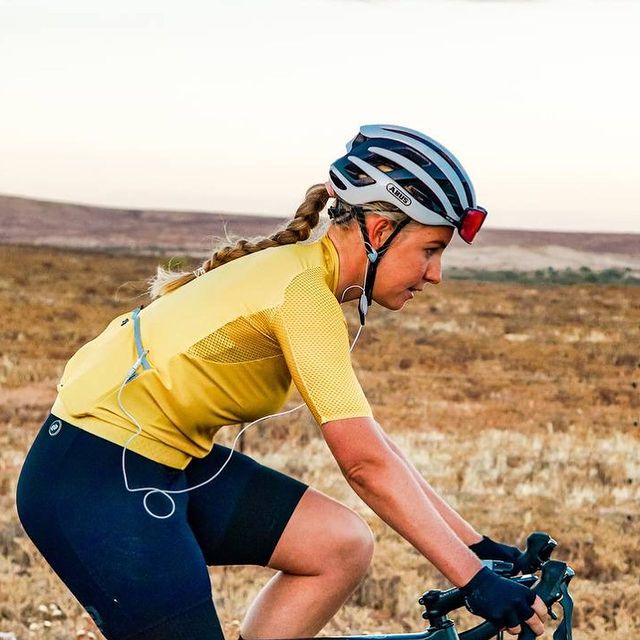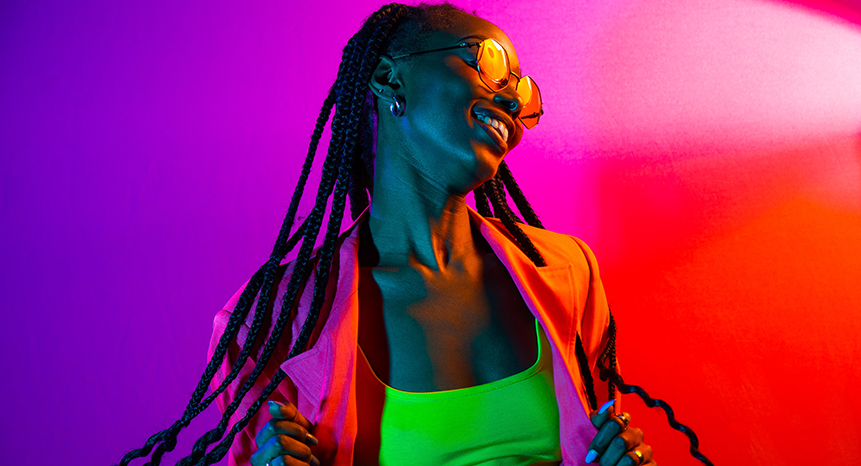
Between 10and5 has partnered with Corona to feature South Africans who are living their lives “outside the cage”. These Free Range Humans have ditched the slog of their day to day to explore a life beyond the bounds of convention. No longer burdened by the weariness and overwhelm of the modern rat race, our South African adventurers have sought an alternative way of living. They’ve discovered the joy of disconnecting from their comfort zones in order to reconnect with nature and a greater purpose.
Tegan Phillips shared with us that being a Free Range Human is not a holiday, but a life choice which involves a lot of work, responsibly and preparation, just not in the conventional sense. Beginning with an envisioned career in law, Phillips got to thinking “say I have fifty active years left of life, that’s not a lot – how do I really want to fill them?”. She decided to pursue her creative path of comic storytelling and illustration while cycling (up the East coast of Africa to Kenya and back!). Phillips lives a life lead with a consciousness, that is inspiring to all people wanting to disconnect to reconnect.

Tell us a bit about you, your life and how you got to where you are.
My name is Tegan Phillips and I’m an adventure cartoonist. When I was 22-year-old law student at Rhodes, I drew some rough comics as an entry to a competition where you could win an adventure bicycle. I won the bike and, with absolutely no adventure experience, cycled from Bristol to the south of Spain, keeping a comic blog along the way. A lot of things went wrong and I got lost and injured and met a boy and ate a lot of Spanish snacks – but ultimately I fell in love with bicycle adventuring and comic story-telling.
The next year (2015), my family bought four heavy-duty touring bicycles and took a gap year to cycle from our home in Cape Town up to Kenya and back. That year changed all of our perspectives on a lot of things, primarily what it means to have ‘quality of life’, and it led us all to make new career choices. In my case, I decided to not continue with law after my undergrad and to get into cartooning and adventuring full-time.
My career since then has involved everything from adventures like a human-powered circumnavigation of New Zealand, a solo time-trial ride to Namibia and back, various fundraising projects to mobilise women through cycling, giving a TEDx talk, starting to make an income as a speaker, starting a merchandise business, and now training to set a Cairo to Cape Town cycling record. It has also involved lots of self-doubt, constantly wondering if I’m making the right choices, crying, lotsss of comfort eating, confusion, stints of living with my parents and a lot of projects that just didn’t work out. There have been thrilling highs and painful lows, but I’ve loved every minute (in hindsight at least!) and wouldn’t change this path for the world.

What does being a Free-Range Human mean to you?
To me, “Free-Range Human” implies autonomy – the combination of both opportunity and willingness to determine one’s own life path, as opposed to having that path be defined by externally imposed rules and models. I should add, though, that Free-Range Humans (by this definition) still have to organise their own food and income and take care of their mental health and living space and do all of those grown up things. It’s easy to think of people who live a more ‘free’ lifestyle as simply being on holiday all the time, enjoying all of the freedom without any responsibility. This is not the case at all! In a way, the price of extra freedom is a need to take on the extra responsibility of creating a whole lifestyle from scratch as opposed to picking out a ready-made option.
Where did you start out on a career path?
After we got back from our Africa bike ride, I was extremely lucky in that my parents said I could stay with them for a year or so while I tried to figure out how to make a career out of comics/adventure. Without their support – financial and emotional – there’s no ways I could have made it through that first, hardest bit of starting out – or at least it would have been much, much more difficult. The first step I took was doing lots of stuff – doing anything and everything I could think of relevant to my fields and doing most of it for free – speaking, writing, going to events and doing ‘comic reports’ – from there I could see what I enjoyed, what people liked and what people would pay for. And then also research! I researched how adventurers make a living, how cartoonists make a living, how entrepreneurs build their brands and businesses – I used that research to help create a model that suited me (still an ongoing process).
What triggered you to want to pursue this lifestyle?
The two weeks before we left for our Africa trip, I did a two week internship at a law firm. I loved the internship but seriously doubted that I could spend the next forty years of my life in a high-rise office every day, sometimes coming in while it was still dark and leaving after dark. School had conditioned me to think that this is a standard way to spend a lifetime, but for some reason I just kept thinking “say I have fifty active years left of life, that’s not a lot – how do I really want to fill them? How do I want to feel when I’m seventy, looking back?”. I had a strong sense that if I didn’t start making some conscious choices around lifestyle, I would slip into a conventional lifestyle and suddenly be old and wish I’d stopped to reflect and be more deliberate about doing things that felt meaningful to me. So when my parents could see how much I was enjoying the cycle touring and cartooning while we were on our trip and suggested that I try to turn it into a job, I felt like it was important for my future life satisfaction to at least give it a shot.

How has your life changed since this move off the beaten path?
To be fair, I wasn’t on the regular path for too long. But I think the biggest thing that has changed is my perception of the necessity of stress. In school and uni, I was extremely goal-driven and stressed and we were all sort of encouraged to be like this: constantly feeling tense in the form of wanting things to be better, sprinting from one milestone to the next. During our Africa bike trip, where we learnt to enjoy the simple processes of being alive, I realised that I don’t want to spend my life feeling tense. I still love working towards a goal, but not at the expense of the way that I’m feeling in any particular moment. I now aim to first be happy and relaxed. To accept things exactly as they are, as opposed to mentally and emotionally resisting them. From this relaxed and surrendered state, I try to start working towards what can be or what needs to be done. That was a major shift for me.
What advice would you offer to people who are stuck in a routine, or feeling stagnant in their lives in general?
I would say that if you want to stop feeling ‘stuck’ – before you change anything in your life, change your mindset. Stop filtering things and start forcing yourself to wake up to every moment – notice everything and appreciate everything. Every day, we are presented with hundreds of opportunities to find and experience joy – every meal, every conversation, every time you look at the sky, there are mind-blowing creations of nature and all sorts of pleasant sensory sensations to be enjoyed – take those opportunities. Focus on positively changing your perspective on your current life before you think about quitting your job to go travel the world – as your perspective changes, your lifestyle will naturally begin to change as you find yourself naturally becoming more connected with things that excite and interest you.

How do you think being close to nature and adventuring benefits humans? Besides the obvious fresh air, space and new experiences, do you think there’s something urban-dwellers are missing?
Three things that come to mind!
- A connection with the resources that we use every day: living in a city, I often find myself thinking “food comes from the shops” and “water comes from the taps”. Thinking about them in this way, they seem infinitely available. But when you’re spending time in the spaces where food is grown, and fresh water is stored, it is possible to develop a new appreciation for how much our resources like food and water depend on things like climate. It makes you start to think about the very real possible implications of climate change.
2. Living life in your body and not in your mind: in the city, for me at least, I can live a very “full day” just sitting in front of my laptop with a kind of blank expression on my face. The ‘life’ of the day comes totally from the things in my mind – plans, projects and ideas. Which can be cool. But when you’re outdoors, adventuring, you spend a lot of time living in your body – you physically feel a lot more natural sensations – hunger, tiredness, thirst, sunlight, cold. You’re experiencing life through your muscles and your senses and I think this gives life a different quality – like the feeling that you’re a human animal, not just a brain.
3. Perspective: in the safety and busyness of the city, we start to perceive fairly abstract things as being suddenly very important – accolades and fame and promotions and iPhone upgrades and we take these things very seriously and they cause us a lot of stress. Living an outdoor adventure life, you’re given the chance to remember what is genuinely essential and what is the optional fluff of a comfortable life. There are many times on adventures where I’ve been a bit scared for my life for some reason or other – elephants or lions or trucks or getting lost and not finding water – and during those times I always think to myself “I will never be stressed about (random city stress) ever again.” I still get stressed about city things but at least it’s nice to have those survival fear reference points.
Share with us your favorite part of living your life.
I love the flexibility to be constantly adapting what I’m doing as I learn more about myself and what I enjoy and what feels like a worthwhile “contribution” in the world.

Do you want to “disconnect to reconnect” and live your best life “outside the cage”? Do you dream of an alternative life, no longer weighed down by your 9-5 job? Corona is giving away R350,000 to one lucky winner to live their ideal life in nature. If you think you could be South Africa’s next Free-Range Human, submit your story here and stand the chance of winning Corona’s Free Range Fund. Because a life outside, is a life worth living.





